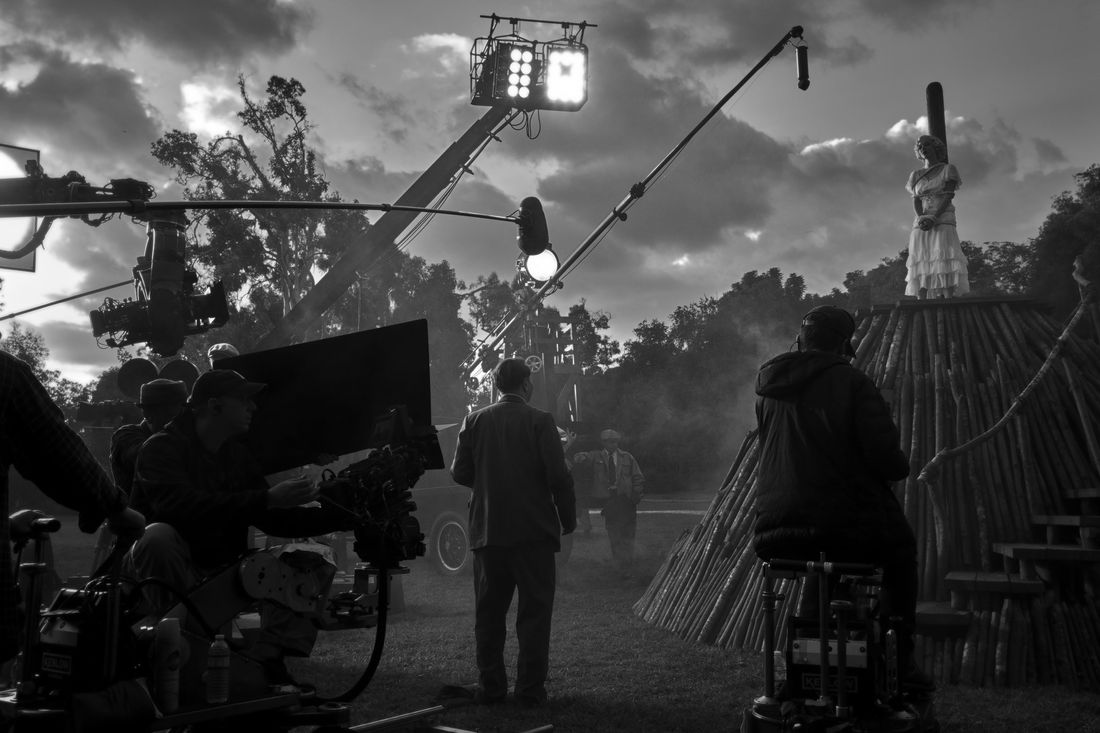One of modern cinema’s most celebrated directors has made a triumphant return with a story 80 years in the making. David Fincher’s newest feature, Mank, hit Netflix in the early hours of December 4th, bringing Christmas early for many Fincher fanatics (such as myself). It had been six years since the release of 2014’s acclaimed Gone Girl and the extended gap (in terms of how frequently Fincher has historically released his films) left much riding on these 132 minutes.

Mank follows the trials and tribulations of screenwriter Herman J. Mankiewicz over roughly a decade, culminating in the release of Citizen Kane, the screenplay for which is considered Mankiewicz’s magnum opus. Early marketing described the film as revolving primarily around the production of Citizen Kane and Mankiewicz’s subsequent battle for writing credits with the legendary Orson Welles. While this may be the narrative thread that the story consistently returns to, the black and white 30’s flashbacks that make up a fair majority of the film craft a portrait of an under appreciated artist of the Golden Era of Hollywood who constantly falls back into his self-made trap.
Over the course of ten films and various successful forays into television, the Fincherian style has been well established both narratively and cinematically. In many ways, Mank is both true to form and a drastic departure from the norm. This quasi-biopic is a genre Fincher had never before dipped into. However, he is still able to put his own twist on what has become somewhat of a formulaic genre. Erik Messerschmidt, a frequent collaborator of Fincher’s, manages to capture the kinetic and, at times, experimental cinematography that has come to be synonymous with Fincher’s auteur style.

Overall, Mank is a highly stylized film; par for the course of Fincher’s films. This time, it is simply a different style. This is perhaps Fincher’s most cinematic exploit. It would be fair to say that anyone going into this movie would want to have a fair grasp on the history of the golden age of the Hollywood studio system. If not, some of the nuances of the industrial film industry that this story relies so heavily upon may be lost in the fold. This is surely a film meant for those who have an interest in filmmaking, just as its subject matter covers one of the most dramatic yet under-appreciated conflicts in the history of the medium. Easter eggs are aplenty throughout this film from references to niche moments in history to background portrayals of some of the most famous stars working at the time. For those who have spent several late nights on Wikipedia devouring article after article on the biggest production studios and their star players, this is definitely a film made specifically for you. If you do not count yourself among them, this may not be the best viewing experience to go into without at least a quick refresher. However, the extra work is well worth it to experience the story that Fincher has expertly crafted in shades of gray.

In short, Fincher’s latest outing has proved to be a cinematic highlight of what has been a rough year in basically every dimension of our day to day lives. The care that was taken in bringing the late Jack Fincher’s screenplay to life is clear in every expertly crafted frame. It is not a surprise that this is being tagged as an early contender for most every major category for the upcoming award season. If you’re like me and consider yourself both a fan of Fincher and award shows, this is film is certainly well worth a night in.
4/5 STARS
